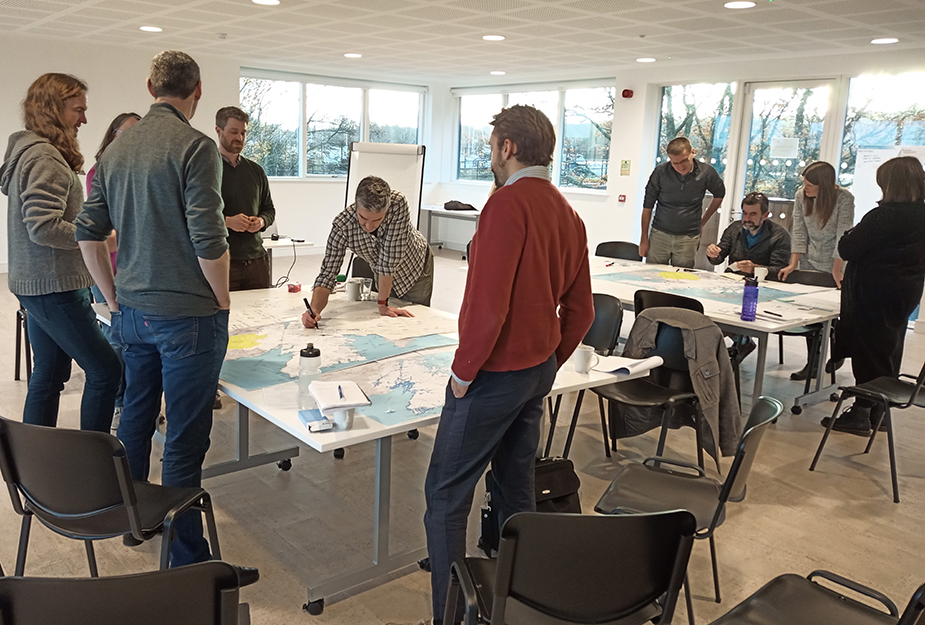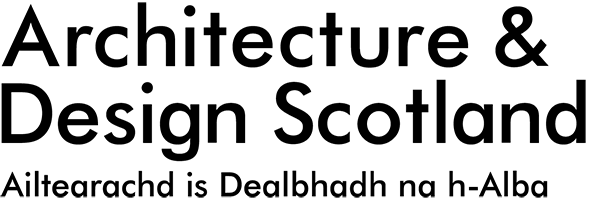Lessons learned from the Key Agencies Group Shared Learning Event

How can local authorities work better together to gather evidence for Local Development Plans?
Over 190 attendees gathered at the first online shared learning event in February, to hear from the Key Agencies Group and local authorities on the benefits of taking a place-based collaborative approach to Local Development Plan preparations.
What was the shared learning event about?
To support planning authorities in meeting national policy ambitions at a local level, the Key Agencies Group has launched a pilot offer to help them gather evidence for Local Development Plans through a place-based collaborative approach.
The shared learning event brought together representatives from Fife, Midlothian, Highland, and Comhairle nan Eilean Siar Councils to share their journey of implementing a place-based collaborative approach to Local Development Plan preparation. The panel also included three key agencies members representing Historic Environment Scotland, Transport Scotland and Public Health Scotland.
They discussed their initial motivations, benefits of working in this way, challenges, and key takeaways from the experience. Architecture and Design Scotland and the Key Agencies Group co-delivered the event with Heads of Planning (HOPS) and Improvement Services.
Barriers of adopting a place-based collaborative approach to Local Development Plan preparation
The process of adopting a place-based collaborative approach can be challenging if the approach is new to you. Pilot authorities shared the barriers or challenges they experienced whilst taking on this new approach to evidence gathering. These include:
- differing capacities and knowledge: stakeholders may have varying levels of understanding, expertise and commitment to the new National Planning Framework 4 (NPF4) which requires sensitivity and flexibility.
- community engagement fatigue: balancing the need for comprehensive engagement with potential fatigue among participants is crucial.
- geographical scale: large or complex geographical areas can pose a challenge when adopting to the new policy framework.
- communication challenges: logistical challenges for collaborative planning efforts can be overcome using innovative online tools to gather people together.
- resource constraints: shortage of time, personnel and financial limitations can impede the effectiveness of collaboration.
The benefits of taking a place-based collaborative approach to Local Development plan preparations
Despite the challenges, pilot authorities shared insights into the benefits they have seen in adopting a collaborative approach to overcome some of the barriers listed above.
Enhanced stakeholder engagement
Pilot authorities noted increased participation from diverse stakeholders which lead to richer information and a more representative output.
In the evidence gathering timeline this is addressed at the first two stages of the evidence gathering process whereby pilot authorities establish a place-based collaborative approach with the project and corporate team.
Prior to engaging in the offer, a pilot authority expressed how they hoped the process would enable them to bring people together to contribute to the Local Development Plan and found that it helped them to identify who to involve and when.
Another pilot authority also noted that through the approach they were able to get stakeholder involvement early on and facilitated earlier connections within the process.
Improved information sharing and collaboration
Collaborative efforts facilitated efficient data collection, knowledge exchange and a deeper understanding of local context.
This was particularly true by using Miro boards for online collaborative workshops, which enabled pilot authorities to experience efficient and engaging collaboration across large distances.
It was noted by one pilot authority that, despite initial challenges in engaging with diverse stakeholders and specialists, the online collaborative tool (Miro) helped to bring disparate departments together, streamline information collection, capture intangible aspects like culture and well-being, and reduce data collection lead times.
A member of the key agencies also mentioned that the collaborative workshops provided a platform for local partnerships, data sharing and a collective voice in tackling inequalities linked to the Local Development Plan.
Broader perspectives
By bringing together various agencies and stakeholders in the evidence gathering process, it helped to provide fresh insights, challenge existing assumptions and identify new opportunities for a local authority area’s place.
Prior to working in this way, one pilot authority shared how they recognized the need for improved departmental collaboration and effective service delivery, seeing this as a chance to work better together. Since being part of the pilot offer, they have increased their confidence in taking a different perspective on modelling and delivery, feel empowered to consider new geographies and facilitated earlier connections within the process.
Another pilot authority shared how they aimed to solidify the ‘place concept’ at the heart of their plan and wanted to raise awareness and profile for the Local Development Plan within the local authority. In adopting a place-based collaborative approach, they were able to raise awareness of the Local Development Plans purpose and benefits whilst gaining new perspectives on achieving their ambition.
Capacity building
Collaboration fostered learning and skill development among participants, benefiting both internal teams and partner agencies.
One pilot authority expressed that despite the initial concerns around explaining the new process to others and ensuring information transparency, they found that the workshop sessions provided valuable insight into local issues, assets and policy considerations for informing the Local Development Plan and how the skills and techniques used in the process is seen as applicable to other areas of work.
Another pilot authority also noted how they were able to link data collected on carbon emissions to support their own understanding of local living for their area.
A member of the key agency group also shared the value of capacity building through reciprocal learning and the potential for broader collaboration beyond the initial project as an outcome of the approach.
Empowered communities
The process recognised the value of community involvement and why there needs to be a channel and process for their voices to be heard.
One pilot authority shared how they used surveys for residents and businesses to gather data on local issues, preferences and business environments. The information gathered through the survey helped to inform the Local Development Plan regarding public services access and business needs.
Another pilot authority highlighted how they plan to use the storyboarding with Miro to develop a story of evidence and make outputs available for public feedback.
A new way of working
Overall, the shared learning event showcased the positive outcomes of a place-based collaborative approach to Local Development Plan preparation. Participants highlighted the benefits of increased stakeholder engagement, improved information sharing, and a more comprehensive understanding of local needs and challenges. This approach encourages continuous learning, innovation and a commitment to delivering Local Development Plans that truly reflect the unique character and aspirations of each place.
About the Key Agencies Group
The Key Agencies Group comprises of a group of public sector bodies that support and demonstrate new ways of working together to delivery better planning and place outcomes. You can learn more about the Key Agencies Group on the Scottish Governments website here.
Header image: In-person Collaborative Local Development Plan workshop with the Key Agencies Group and Highland Council credited to Highland Council
Looking to follow a similar approach to gathering evidence for Local Development Plans?
Place skills for plan-making follow the same steps the six local authorities are taking in gathering evidence for their report. Through this resource package you’ll gain access to the step-by-step process, templates and learning seen through the offer.
